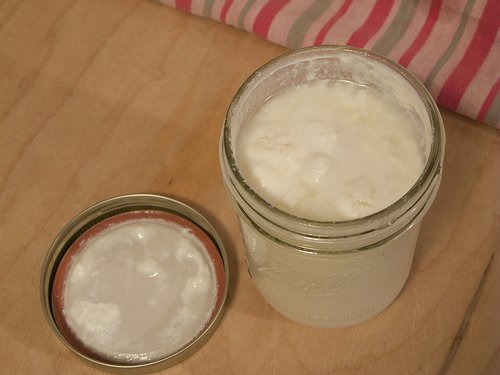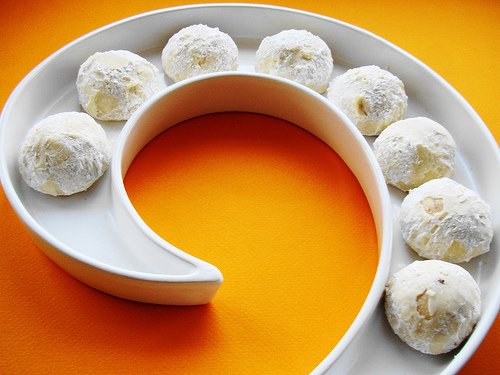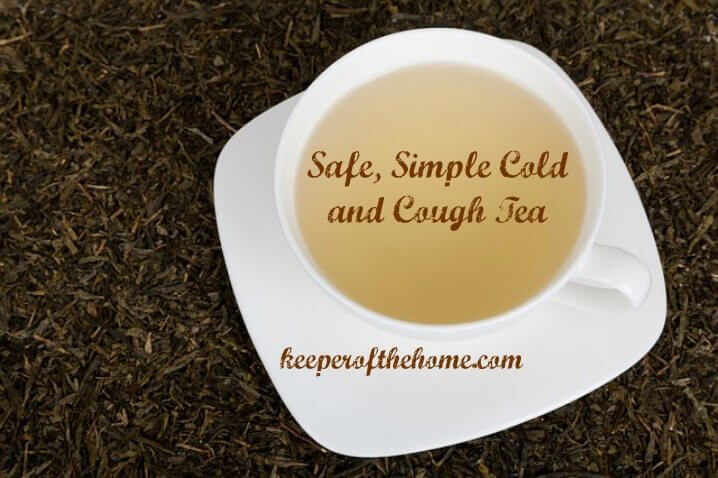Simple Ways to Improve your Digestion and Gut Health

Image by David Niergarth
“We tend to take our gut for granted, and it costs us dearly. We continually eat wrong foods that are rarely digested properly. The by-products of incomplete digestion clog the gut with accumulated debris. This coating becomes a perfect breeding ground for dangerous forms of bacteria and other microorganisms.” Jordan Rubin, The Maker’s Diet
I’ve been sharing lately about the GAPS diet for gut health, and why our family is doing it. Nonetheless, it’s not for everybody, or certainly not in every season of life. I know that many families are just working towards better eating habits in general.
What is worthwhile for anyone to consider, however, is how you can improve your crucially important digestive system and the overall health of your gut. It doesn’t have to be fancy or all-consuming, nor does it require you to fork out money for supplements promising you this or that.
Want to feel better by improving your digestion, reducing overgrowths of bad bacteria and yeast, increasing growth of good bacteria, encouraging better absorption of nutrients and aiding your body in dealing with toxins?
Here is a list of practical and simple ways that anyone can improve their gut health:
Drink less with meals.
When you drink a lot during a meal, it dilutes the levels of hydrchloric acid in your stomach. Without sufficient HCL, digestion can not proceed quickly or smoothly. Try to have your drinks at least 30 minutes before, or 30-60 minutes after you eat.
Additionally, beverages that are room temperature are easier on the digestive system than really cool drinks, so skip the ice if you can (and knowing this, I still drink cold smoothies, but I do try to have most of my other beverages sans ice).
Have fermented foods with or just before your meals.
As a rich source of enzymes, naturally fermented foods help to break down what we eat, in addition to boosting the good bacteria count in our bodies. A few examples are kefir or yogurt, kombucha, sour cream or creme fraiche, fermented veggies (lacto-fermented pickles or salsa, sauerkraut) and any other food that is naturally lacto-fermented or made using live bacterial cultures.
Try adding just one or two fermented and/or cultured foods to your family’s repertoire. For some helpful resources, see Health Benefits of Fermented Foods, Proactive Probiotic Foods, and Baby Steps: Eating Cultured and Fermented Foods.
Add homemade bone broths to your diet and try to include them in meals as often as you can.
Use them in soups and stews, in gravies, in pasta sauces, in casseroles and pot pies, or even drink them by the mug with or in between your meals. Truly healing and soothing to the gut, bone broths are a frugal homemakers best friend on the road to better health. Broths are cheap and easy to make, and when made correctly, are powerhouses of gut-healing gelatin and other nourishing nutrients.
Take probiotics.
I don’t recommend too many supplements, because I prefer to get my nutrition from whole foods. However, there are two that I regularly recommend and they are cod liver oil and a good quality probiotic. You might have heard of acidophilus, which is just one of the many beneficial bacteria strains that we want to populate our gut.
For many reasons due to our North American diets, chlorinated water, antibiotic use and more, we need to be proactive about repopulating our gut with these friendly little bacteria, who do so much more in our bodies than we really give them credit for. I love Primal Defense from Garden of Life, but there are many excellent ones out there. Ask a reputable health store for their recommendation.

Image by norwichnuts
Eat less refined sugar and grains.
We should be aiming for this anyways, but particularly for gut health. These sugars and refined carbohydrates really feed the growth of yeast like Candida and other bad bacteria in the digestive tract. Bad news for our gut health. Really bad.
These are a huge part of the reason why we have to work so hard to rebalance our gut bacteria so that the good guys win out. Cutting these refined foods out is a major step in the battle for gut health.
Start your morning with a glass of lukewarm water with fresh lemon juice or apple cider vinegar.
This gives your digestive system a gentle jump start and prepares it for the food that you will start your day off with. Starting your morning with smoother digestion goes a long way towards a better functioning system overall.
Try hydrochloric acid or digestive enzymes.
For those really struggling with poor digestive health, but still not ready to make major dietary changes, this one is for you. Most people with digestive/gut issues have insufficient stomach acid (hydrochloric acid) to break down foods, and most of us do not eat enough live enzymes through raw or fermented/cultured foods to help that process along.
Taking hydrochloric acid supplements, and/or digestive enzymes, can help your stomach to at least begin the process of breaking down the foods that you eat. The rest of your gut may still be imbalanced, but the more effectively that your stomach is able to work at properly breaking down foods before they enter the rest of the digestive tract, the better.
Listen to your body.
If something you eat seems to throw off your digestion (as evidenced by symptoms like heartburn, gas, bloating, cramping, diarrhea, etc. even if the symptoms are mild), take a break from that food. Give your body a longer rest before you eat another meal, rather than adding to an already upset system.
Try to avoid overeating as this really taxes the digestive system and usually results in food that is not being properly digested. Use caution and common sense, even if it means saying no to something you’d really like to eat (yes, I do know that this is hard, but your body will thank you!).
When digestive upset occurs…
Ginger tea can be an excellent remedy, as it is very soothing to the system and aids in digestion. Another great option is peppermint tea, or a few drops of peppermint essential oil in a glass of warm or lukewarm water.





Hi Stephanie,
That was so good to read. I’ve found the same since I started drinking kefir or kombucha, or lemon juice, first thing in the morning, or before the evening meal.
Also, the bone broth is added to everything- when cooking rice, into the casseroles.
And, I been so well, no colds, tummy bugs, just so well- amazing!!
Love your article. You summed it up well.
Sleep is another big factor in intestinal health! I try to get lots of rest, especially when I’m having “IBS” or Candida issues.
This is food for thought for me. I have noticed in the last month that by supper time my digestion seems to have stopped. I often skip supper because I already feel so full. I am going to put some of your suggestions into practice right away.
Thanks for such an amazing blog. I have learned so much from you. God bless!
Very good post! I enjoy your blog so much. My weak areas are the fermented foods. I just haven’t taken the time to make them and serve them to my family. However, I do pretty well with the bone broths and try to sneak some in to as many meals as I can.
I’m getting there one step at a time. Your blog is a wonderful inspiration!
.-= Paula´s last blog ..Beginning This Friday – A Good Laugh =-.
Do you think Kombucha would do the same as the Apple Cider Vinegar?
.-= Laryssa @ Heaven In The Home´s last blog ..Spring Crafts =-.
@Laryssa @ Heaven In The Home, Yes, I do. I often have a glass of kombucha before a heavier meal, and sometimes I have a bit after to help out when I feel I’m not digesting something very well. Personally I find it quite helpful!
@Laryssa @ Heaven In The Home, Just realized you were asking about it in regards to starting out your morning… and yes, I think it would have the same effect. Can I blame my tired brain on the head cold I’m fighting? 🙂
Absolutely! Thanks for getting back to me.
.-= Laryssa @ Heaven In The Home´s last blog ..Spring Crafts =-.
stephanie,
your blog is SUCH an incredible source of information, inspiration and insight. it amazes me how GOD opens doors for me and as i seek and pursue what He has laid before me (health and wellness for my family) i am blessed along the way with women like you! so, thank you.
i love kombucha and am just figuring out how to make water kefir (my daughter is allergic to cows milk). i have felt like i need to try to ferment veggies but it seemed so intimidating – then, last week, a dear friend invited me and some friends over to watch her make sauerkraut and fermented carrots! again, a blessing at just the right time. it was SO easy to make, and so delicious! i plan on making more this weekend w/my mom and aunt.
i agree w/all your other suggestions … right on target.
and i love the quote from jordan rubin – “the maker’s diet” was foundational and paradigm-shifting for me.
blessings!
emily
@emily, I felt the same way about the Maker’s Diet! 🙂
Dear Stephanie ~
Another wonderful post! Thanks for the links and the time and effort you put in. I have bookmarked this one for future reference. We have used the bone broths all winter and have had a very healthy winter ~ there are six of us, so it must be doing something good as keeping this many little people healthy all winter is a feat in itself. *smile*
Blessings,
Camille
.-= Camille´s last blog ..Spring Has Sprung =-.
Thank you, Stephanie for this post. I had no idea about too much fluid intake during a meal. I’ll be sure to read more on that. Some things that we have been doing in our family:
kefir smoothies
bone broth soups
fermented cod liver oil
raw milk kefir smoothies
We haven’t been having lactofermented veggies with our meals, and I really do want to start doing that. My father makes atchara (you can read about it on Tropical Traditions) and I need to try and make it and lactoferment it. I just bought a bottle of salad dressing made by Zukay, which is lactofermented.
I do want to get my hands on some water kefir grains… that would be wonderful.
I have read that if you are a nursing mother and had kombucha on a regular basis, that you shouldn’t start up until AFTER the baby is weaned- due to toxins released into the milk. Is this a valid statement?
Thank you again for all that you post. God bless you and your family.
.-= Flo´s last blog ..Thankful Thursday: New Fiestaware Dishes =-.
@Flo, Kombucha is detoxifying, so that’s why the concern about drinking it while nursing. There are many who think that it is just fine if used in moderation. Some prefer to avoid it altogether. Personally, I think it’s fine to have a small glass daily, just don’t go nuts with it.
Thanks for yet another practical, helpful post! I appreciated the point about listening to your body. That’s hard to do, but something I’m working on with the GAPS diet. I feel like this post gives me a great summary of what I want to focus on even once we’re done GAPS and back to a Nourishing Traditions diet. Thank you!!!
I have been wanting to start taking cod liver oil but have heard not all brands are good for you, Can you recommend a brand?
@Deb, The brand that we are currently using is one of the best that I know of. It’s called Green Pastures. It is fermented, unrefined cod liver oil (sounds gross, but trust me, this is the good stuff). You can get either a flavored version to take on a spoon, or just capsules (like my hubby and I).
Great site. A lot of useful information here. I’m sending it to some friends!
I am so happy I came across this post. Recently I have been experiencing a lot of bloating, and gas…and it just isn’t fun. I am pretty sure I am experiencing it from dairy which is weird. I never had problems before. I am a sucker for sugar, but reading this article has given me new motivation to cut it out, and take a break from dairy. The water with lemon is something I can easily do at first, and also digestive enzymes supplement to start. Thank you. 🙂
@Danielle A, You’re welcome, I hope you find some relief! 🙂
Hi
I would like to add a few points to this excellent post.
One is that you can drink as much as you like with food if what you drink include some kind of a organic acid like f.ex citric acid, malic acid, acetic acid/vinegar, lactic acid/fermented drinks and milks, etc since the acids both help digest the food as well as stimulate the stomach cells to produce stomach acid. This way you can enjoy your drinks with meals as well as eliminating the need to eat fermented foods before or with the meal if your drinks are lactofermented.
And two is that the amino acid glycine, which is found in most animal foods and in particularly large amounts in gelatin (including bone broth) regulate the production of stomach acid. That means glycine regulate both hypo and hyperchlorhydria (to little or to much stomach acid). Gelatin and other glycin sources are cheaper than hydrochloric acid supplements, and have so many incredible health benefits it is way beyond any acid supplement when it comes to health effects.
Reference, glycin/stomach acid –
http://www.ncbi.nlm.nih.gov/pubmed/7065145
Have fun 🙂
Just taken some Green Pastures Blue Ice fermented cod liver oil-and feel seriously nauseous-been trying to deal with it for some months, cant help but feel that Blue Ice fermented cods liver oil is in fact just rancid-is anyone else having similar issues??
Thanks for the great info. Stephanie. Taking care of the digestive process, colon cleansing, etc. has served my well throughout life. Have not been sick or to doctors in over 20 years. Nice site and thanks again for the info.
great work..it was very helpful correcting my digestion
There is such a close co-relation between gut health and the overall physical and mental wellbeing of our body, that if compromised, it can manifest in the form of a wide range of disorders like diabetes, rheumatoid arthritis, skin disorders, obesity, depression and even autism. An incompetent gut upsets the body’s natural rhythms and throws it completely off gear. The gut flora and the gut barrier are the two major factors that define gut health and an imbalance in either of these affects every aspect of our health, both mental and physical. With the true significance of intestinal health being revealed, experts are now convinced that restoring gut flora and the optimal functioning of the gut barrier could be the key factors that pave the way for better health in the 21st century. Keeping this aim in mind, we need to make conscious changes to our diet and limit all foods that could interfere with the smooth functioning of the gut. Visit http://lovefitnesseducation.com/2012/10/02/how-to-improve-your-gut-health/ for more on how to improve gut health.
Man this is some good info that I hope will help me! I have always had digestive troubles and didn’t know that was my problem UNTIL going on Wheat Belly by Dr. Davis back in Feb. My Dr. asked me if I liked to read and I said yes so she said, read this book. I have always had bloating and it’s just miserable. I was/am having lots of health issues and we’re trying to get them all worked out. I am going to do me some bone broth and add that to my drinking lists. She (Dr.) wants me drinking a gallon of spring water each day. I have lost 44 pounds so far doing this but need to lose that much more at least. Thank you for posting this info!
I am really curious as to how you lost that 44 lbs. I just started juicing and trying to maintain a plant-based diet (which is really hard considering I am 62 and have eaten the traditional American diet). I started about a month ago and have lost 9 pounds and already noticed some health benefits/resolutions. I have a lot of weight to lose yet–@ 75 more lbs—and I want to make sure I am doing the right things and am on the right track. I am always interested in other people’s weight loss. Congratulations, by the way, on the awesome weight loss!!